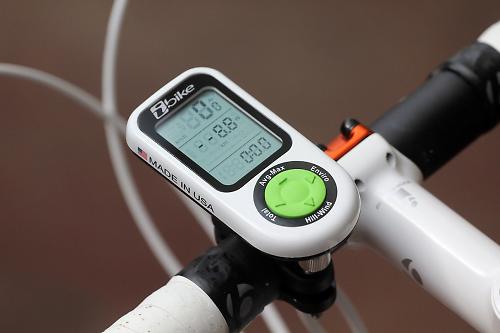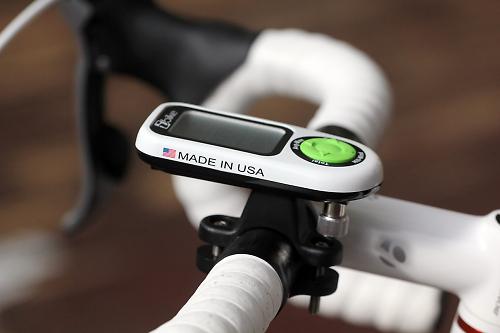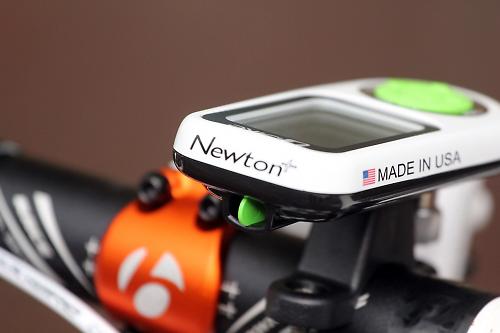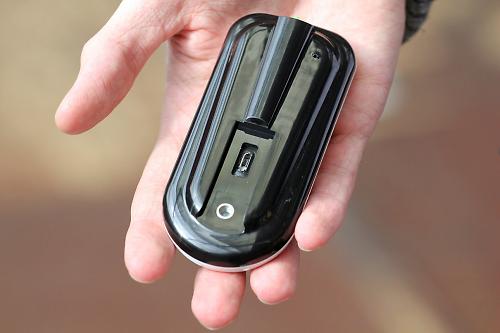- News
- Reviews
- Bikes
- Accessories
- Accessories - misc
- Computer mounts
- Bags
- Bar ends
- Bike bags & cases
- Bottle cages
- Bottles
- Cameras
- Car racks
- Child seats
- Computers
- Glasses
- GPS units
- Helmets
- Lights - front
- Lights - rear
- Lights - sets
- Locks
- Mirrors
- Mudguards
- Racks
- Pumps & CO2 inflators
- Puncture kits
- Reflectives
- Smart watches
- Stands and racks
- Trailers
- Clothing
- Components
- Bar tape & grips
- Bottom brackets
- Brake & gear cables
- Brake & STI levers
- Brake pads & spares
- Brakes
- Cassettes & freewheels
- Chains
- Chainsets & chainrings
- Derailleurs - front
- Derailleurs - rear
- Forks
- Gear levers & shifters
- Groupsets
- Handlebars & extensions
- Headsets
- Hubs
- Inner tubes
- Pedals
- Quick releases & skewers
- Saddles
- Seatposts
- Stems
- Wheels
- Tyres
- Health, fitness and nutrition
- Tools and workshop
- Miscellaneous
- Cross country mountain bikes
- Tubeless valves
- Buyers Guides
- Features
- Forum
- Recommends
- Podcast
TECH NEWS
Just In: iBike Newton+ power meter
The latest training tool we have in for test here at road.cc is the £599 iBike Newton+ power meter that calculates your power in a very different way to other systems out there.
Most power meters use strain gauges that measure the amount of flex in a particular component. Garmin, for example, use strain gauges in the pedal axles as the basis of the Vector system's power calculation while Stages and Pioneer use strain gauges in the crank arm. Each system measures the amount of flex, converts that into the torque (rotational force) you're applying, factors in your cadence, and comes up with a power figure.

iBike do things differently using a digital accelerometer and dynamic pressure sensors to measure forward acceleration and the opposing air pressure, while a wireless sensor mounted to the chainstay measures bike speed. The system takes its measurements 16 times per second and gives you separate left/right leg data.
First of all, you need to input the total weight of you and your bike, the tyre size, the road surface, your height and your ride position. The iBike system uses these details to determine the coefficient of drag (CdA) and the bike's coefficient of rolling resistance (Crr).
Then, says iBike, "The Newton's 'Physics Engine' converts air pressure, accelerometer and speed measurements into opposing wind, hill slope, acceleration, frictional forces.
"The total opposing force, multiplied by bike speed, equals cyclist power. Because it accurately measures opposing forces and speed, the iBike Newton accurately measures power."
That's the theory. And iBike says that its system doesn't need to be recalibrated over time.

What's the benefit of doing things this way rather than using strain gauges? For a start, there's price. The iBike Newton+ power meter costs £599 (the cheapest Stages power meter cranks are £599, but you don't get a head unit. We won't go into the pros and cons of Stages versus iBike here). Plus, it's easy to swap between bikes – the Newton+ stores four different bike profiles so you just switch to the relevant one. On top of that, the Newton+'s sensors are located in the bike computer head unit which means, says iBike, they can offer better water resistance, and there are no moving parts to wear out. The weight is just 82g.
iBike says, "The Newton includes serious training features such as average and max power, TSS (training stress score), IF (intensity factor) and NP (normalised power) measurements, FTP (functional threshold power) test, customized workouts… and fully wireless operation. Exclusive iBike features including wind speed and precision hill slope measurement provide you with training and racing insights that no other power meter, regardless of price, can offer."

We'll go into those features in more depth when we come to the review in a few weeks.
You're sceptical of the accuracy? That's fair enough. The system relies on accurately measuring the air pressure working against you, for instance, and it gets that information via a wind sensor in the head unit mounted to your handlebar. At first sight, that seems like a tricky figure to get right. The proof of the pudding, though, is in the eating, and iBike reckon that their system is accurate (naturally!).
The US brand says that the Newton+ is accurate to within +/-2%, which is what most other brands claim for their power meters too (Power Tap claim +/-1.5%). There are data comparisons between the iBike system and power meters from other brands on the iBike website www.ibikesports.com.
The iBike uses ANT+ so you can use it with other ANT+ devices like a Garmin speed/cadence sensor, for example. You can also add GPS to your rides if you use the Newton+ in conjunction with a smartphone (iPhone or Android).
iBike has its own free Isaac software that guides you through setup and calibration and allows you to display your ride data and analyse your results on either a Mac or a PC. After uploading your rides, you can share them on Facebook or send files to TrainingPeaks or Strava.

To be perfectly honest with you, although a lot of fun, reviewing power meters is also a bit of a nightmare. Out of all the products we test, power meters are probably the most difficult. How can you measure their accuracy? All you can do is compare the measurements given by a bunch of different systems, but how do you know which is giving the truest reflection of your power output? If you have three power meters that basically agree and one that gives figures that are wildly different, it doesn't necessarily mean that the outlier is wrong – you can't decide these things on a show of hands!
Still, that's something for us to worry about at this end. We'll set up the iBike Newton+ and start using it alongside a bunch of other power meters and see where we get. We'll report back with our findings on road.cc as soon as possible.
For more info go to www.ibikesports.com or the UK distributor www.dhwagencies.com.
Mat has been in cycling media since 1996, on titles including BikeRadar, Total Bike, Total Mountain Bike, What Mountain Bike and Mountain Biking UK, and he has been editor of 220 Triathlon and Cycling Plus. Mat has been road.cc technical editor for over a decade, testing bikes, fettling the latest kit, and trying out the most up-to-the-minute clothing. He has won his category in Ironman UK 70.3 and finished on the podium in both marathons he has run. Mat is a Cambridge graduate who did a post-grad in magazine journalism, and he is a winner of the Cycling Media Award for Specialist Online Writer. Now over 50, he's riding road and gravel bikes most days for fun and fitness rather than training for competitions.
Latest Comments
- David9694 1 sec ago
Another Conservative bemused at how but a Conservative policy is turning out
- hawkinspeter 54 min 13 sec ago
I'd rate reversing into a space as much safer for cyclists and pedestrians as the driver should have a much greater view of the road/pavement than...
- hawkinspeter 2 hours 40 min ago
Controversial £15 million Park Street scheme will 'gridlock' Bristol:...
- Global Nomad 5 hours 29 min ago
would be good to see you test the Newmen wheels the weight/price ratio is extremely good and suggests that europeans can match the chinese in this...
- mdavidford 7 hours 48 min ago
I don't think you have. I think their point was:...
- jamesha100 17 hours 44 min ago
Should be a lifetime driving ban. Who could seriously argue against the justice of that in this case?
- thax1 1 day 30 min ago
Another 'sound-alike' mid tier offer, so I get all excited and buy a bunch of them thinking I've got an absolute steal. Only to then realise I've...
- mdavidford 1 day 39 min ago
first cast out the beam out of thine own eye
- mark1a 1 day 2 hours ago
New addition to the fleet, a Specialized Aethos. This is the Comp model, 12 speed 105 Di2, 10r carbon layup in pearlescent white, with upgraded...
- Secret_squirrel 1 day 7 hours ago
Yes. Just like there's no push rod brakes or U brakes any more. Get with the program granddad.







Add new comment
28 comments
I'll suspend judgement.
As others have noted, Strava's power algorithm does a pretty good job based on nowt but a GPS track and a map database.
Case in point: I know my LT is 245W sitting on 80-85% max HR (as part of a sports PhD program I had a set of vomit-inducing tests done on a £15k power-bike-thing). When I go out for my monthly benchmark 'flying hour' loop Strava gets the power estimation within a few % every time - compared with my HRM average stats. If I've pushed a bit harder - say 87% - Strava tracks wattage a bit higher. Ditto for going a bit easier. That's irrelevant of wind - purely based on my time over the route.
So don't write it off just yet, because you can't fathom how they've done it. If it was fundamentally flawed they would be up for a class action and a ton of refunds.
One great thing I see here is that given a wind speed sensor and accelerometers are literally a few bucks a piece, the scope for this technology to get radically cheaper real quick is high.
Strava aren't charging you £500 for access to the 'data' though.
As a instrumentation system (from what I experience day to day at work) it's not worth the paper the manual would be printed on.
The final output of it is reliant and far to many variables into a model, when you accumulate the errors up of all these it's just way out of workable limits.
A strain gauge based system is more reliable and repeatable, you're not reliant on putting parameters, the force measured is directly proportional to power.
Strain gauges aren't too expensive either, it's just the application here that makes them expensive
This is April 1st right? Surely not a serious product.
It's seriously, seen it around a few times.
They even have the audacity to compare it to 'proper' (strain gauge based) power meters, and say how they're out instead of the one based on airflow and pretty useless maths.
For data measurement that has vary too many variables around to influence the data, that'll give you next to no repeatability as well.
Save the £500 and ride on feel till you can afford a proper power meter, there's a reason they're expensive.
Yawn.
Get a stages.
Tax in NJ is less, just jump on the train from Penn Station!
I agree with the reservations above (and amongst all that, how on earth does it measure individual left/right leg power?) but maybe we're looking at it from the wrong angle. What these guys have really done is look at the power calculations in Strava - made by nothing more than extrapolating the data from the basic feed - and added a load of gizmos to try and qualify the data and reduce the unpredictability. Maybe it's quite good.
That said, I would also think that the price jump to the Stages product (including buying a head unit) would be more than justified. The Newton would need to be half this price to combat that.
As you and the bike weight is required if I go out with 2 full water bottles and drink the contents I have lost 1.5kg of weight during the ride. Then refilling for a longer or hotter ride adds another variable.
As others have said I would be more interested in consistency than absolute accuracy if I ever bought such a product.
It seems flawed on so many levels. What if you had mudguards fitted for example (or loose clothing). They'd increase wind resistance but that wouldn't be picked up by the "iBike".
Very original name too. Who'd have ever thought of sticking a lower-case 'i' in front of the generic noun? Must have taken them *ages* to think up that one.
Seems very silly. It has to estimate your coefficient of drag from the riding position you enter into the system, so it's going to be inaccurate. That's not a big deal, but it's also going to be inconsistent, because my drag is going to change when I ride on the drops/hoods/tops and depending on what I'm wearing. Don't see how you could use this as a training tool, anyone got any ideas?
£599 here, $499 in USA. Anyone going to NYC in the near future?
£599 here, $499 in USA. Anyone going to NYC in the near future?
Does that include GST though?
$499 / 1.66 = £300
With tax £300 * 1.2 vat = £360 - That's a long way from £600 aka ripoff Britain, it'd be worth paying the absurd postage amount that no doubt would be charged from the US.
The absolute figure isn't that important (see http://road.cc/content/review/94115-garmin-vector-power-meter-pedals). Whether you call it 1000W or 900W doesn't make a whole heap of difference. But that's not the only measure of accuracy.
Does it matter if the reading is correct though as long as it is consistent and the rider does not try and compare between meters.
For training purposes, if you measure your FTP to be 1000watts, obviously wrong, but work according to that on that meter how wrong will you go?
Sure, but I can't see it being consistent enough to be useful.
As others have said, there are lots of variables that it won't know about: what position you're in, what you're wearing, the effect of a cross wind, road surface, under/over inflated tyres - and that's just on a single bike.
What I really want is something that gives me the same figures on a turbo trainer and on the road.
Maybe "net opposing force" would be clearer. When you're freewheeling down hill there's gravitational force that is balancing air and rolling resistance.
I share the above skepticism about how accurate this system can be. To my mind the big advantage of a power meter is that it removes all the other variables from the measurement, rather than just trying to compensate for them.
At this price, the Stages meter seems like a better bet, particularly as I've already got a Garmin and would rather not have another head unit.
Testing power meters isn't so much about accuracy between different devices or methods, as it is about consistency in the same device.
That's what I'd be most interested to see on this.
To my mind there are too many variables and conditions it needs to take into account to be accurate from ride to ride.
You don't use the same position all the time on the bike and it can easily make 20-30 watts difference being on the hoods or down on the drops, or even with hands to the front
in a TT position (which might also shelter the device).
Great if it works, and presumably they didn't get this far without doing a lot of testing.
A lot of people just want a power meter as an expensive toy. This is probably something that would appeal to people who want a general idea of power at lower cost rather than a precise training measure.
"The total opposing force, multiplied by bike speed, equals cyclist power"
But if I'm freewheeling downhill, there's plenty of opposing force (I can feel the wind in my face) and plenty of bike speed, but cyclist power is zero.
The article mentions digital accelerometers, so if these were on the cranks or pedals I suppose you could distinguish between freewheeling and pedalling. But then you couldn't distinguish between pedalling against resistance and just turning over when you're coasting...?
I dunno, presumably they've thought of all these things but this approach does seem to be a bit hacky.
"The Newton's 'Physics Engine' converts air pressure, accelerometer and speed measurements into opposing wind, hill slope, acceleration, frictional forces.
"The total opposing force, multiplied by bike speed, equals cyclist power. Because it accurately measures opposing forces and speed, the iBike Newton accurately measures power."
@Mat Brett - what about road gradient?
If it only measures "forward acceleration" then that's not good enough.
Yes, MTBHuw, that's the obvious question. We'll find out! We can compare how close the results are to those of other systems while in different positions throughout the course of a ride.
Cyclosis: the Newton+ has an indoor trainer feature. We've not used it, but we'll cover it in the review.
Seems to need a lot of parameters input by the user to work effectively. Road surface, rider position, height, weight?! Road surface and position alone can vary hugely during a ride, so aren't these going to have a big effect on measurements?
Looks like one disadvantage (unless I'm missing something) is that is wont work on a turbo which is a shame.
Still, looks clever, and hopefully one more competitor will mean prices will come down too.
They have profiles to work for various trainers too. It is a paid upgrade.